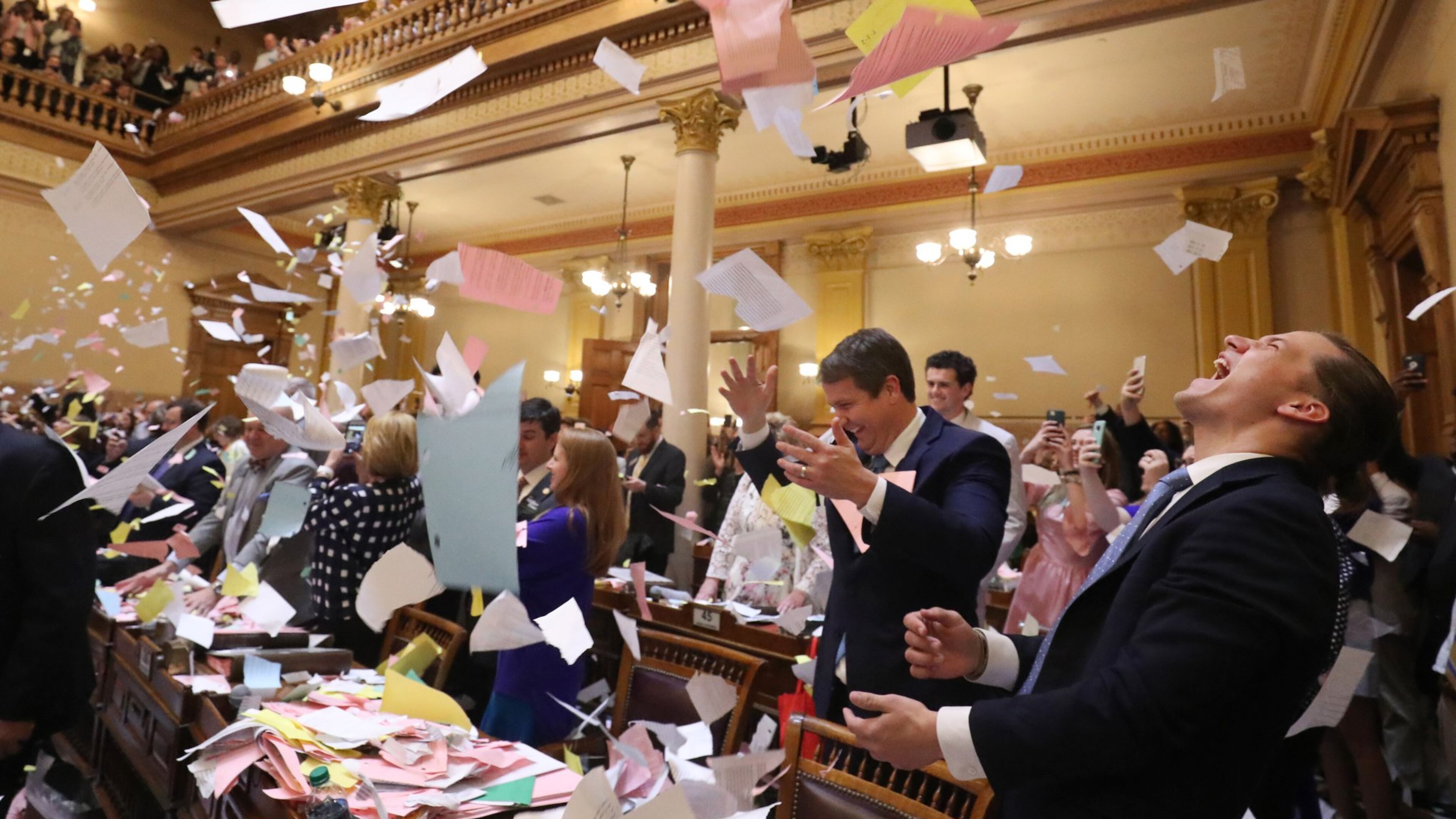Ga. Legislature: Despite busy session, few changes coming to DeKalb

All seven DeKalb commissioners will get a 60 percent pay raise in January, and CEO Mike Thurmond's job is safe for now.
Greenhaven cityhood proponents were shunned again and Stonecrest Mayor Jason Lary didn’t get the additional power and higher salary he had lobbied for.
These were among the DeKalb County proposals that the General Assembly failed to act upon before session ended last week, meaning the status quo remains. They highlight the sometimes competing agendas of DeKalb’s House and Senate delegations and the power struggle of a Democrat-dominated delegation working within a GOP-led legislature.
VIDEO: Previous coverage from DeKalb
Rep. Howard Mosby, D-Atlanta and chairman of the DeKalb House Delegation, said at least two proposals backed by Republicans died in part because they were introduced as general bills that circumvented the normal process for vetting local legislation.
Among them was Sen. Fran Millar's plan to prevent DeKalb County commissioners from collecting their pay raises under their current term ended, meaning four of seven members would have had to wait until 2021. Another introduced by Rep. Meagan Hanson would have eliminated DeKalb's unique CEO form of government.
“When a Republican introduces a bill through general legislation, they literally are saying we are going to force this down your throat,” Mosby said. “And that sets up an environment of mistrust.”
Millar's proposal died in part because three of the four men on the commission would have received their raises on Jan. 1 while all three women would have had to wait two more years.
Hanson, R-Brookhaven, was criticized for pushing through a proposal without the input of DeKalb elected officials or citizens, and she eventually settled with an alternative plan to form a study committee that evaluates DeKalb’s governance structure.
Greenhaven proponents are already indicating they will try again next year on their cityhood initiative, which would be their sixth year attempting to form the new municipality in south DeKalb. They will be joined by proponents of creating the city of Vista Grove on the north side. Vista Grove bills were filed this year mostly as placeholders so that the issue could be seriously considered in 2019.
Lary has not said whether he will try again on rewriting the city charter to create a strong-mayor form of government, placing the blame on DeKalb delegation chairman Emanuel Jones for blocking the measure. All six House members who represent parts of Stonecrest supported the proposal, but it died when none of the three senators signed on.
Here is a summary of the DeKalb bills debated during the 2018 session:
Passed
- Create a study committee to come up with recommendations on DeKalb's form of government (HR 1429)
- Create a study committee to evaluate the financial impact Atlanta annexation will have on DeKalb schools (SR 1067)
- Changes to the way vacancies are filled on the DeKalb audit oversight committee (SB 487)
Failed
- Delaying pay raises for DeKalb commissioners until their current term has expired (SB 430)
- Eliminating DeKalb's CEO form of government (HB 961)
- Creating a strong-mayor form of government in Stonecrest and increasing the mayor's salary (HB 1060)
- Authorizing a vote to create the city of Greenhaven in south DeKalb (HB 644 and SB 495)
- Authorizing a vote to create the city of Vista Grove in north DeKalb (HB 1001 and SB 493)



